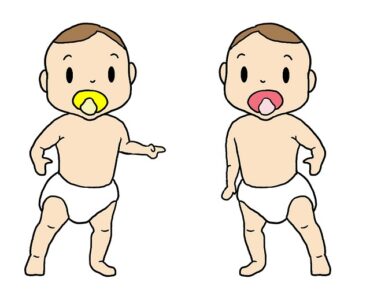One of the most common questions asked by new parents is “Why is a healthy diet important for child development?” There are many studies done that show how children fare when they eat a diet that is rich in vitamins and nutrients, especially those found in fruits and vegetables. Children who eat this type of diet have better eye sight and are more likely to be immunized against illnesses. The long term effects of such a diet on children can lead to a healthier lifestyle and a longer life.
The two main food groups children should follow are protein and carbohydrates. Protein is found in meat, poultry and fish and includes eggs, milk, cheese, soy, beans and nuts. When protein is present in the diet, it helps the body produce antibodies that help protect the body from infections. Carbohydrates are found in breads, cereals, pasta and potatoes and are important for energy. However, children often snack on these foods and this leads to weight gain, a poor complexion and unhealthy eating habits.
Children have a need for sweets and fat. In addition, they require vitamins, minerals and fat in their diet. A healthy diet consists of foods that are high in vitamins, minerals and fat but low in carbohydrates. This means eating more vegetables and fruits and fewer meats, carbohydrates and sweets. Many of the popular children’s breakfast cereals contain both sugar and artificial sweeteners that are bad for young growing bodies.
Healthy diets promote better child development because they teach the body proper nutrition and give it the fuel it needs to grow and learn. They also provide the necessary substances needed for mental growth and development. It is especially important to support healthy eating for infants, toddlers and children between the ages of two and seven years. Some of the nutrients that a child needs include iron, calcium, zinc and vitamin E. In fact, many of the vitamins that are most important for child development can be found in foods that are not always on the list of your daily menu. For example, certain fruits and vegetables contain the same amount of antioxidants as many antioxidant rich dairy products and meats.
A healthy diet encourages you to consider the “whole” food. It is important to include a variety of foods in the diet, and not to eat just one type. By choosing lean meats and lean poultry, fruits and vegetables you will be consuming a variety of foods that will compliment each other and enhance the flavor and texture of your meals. A well-balanced diet includes foods from all food groups.
Child development is affected by nutritional deficiencies and risk factors. These factors include birth place, gender and race. Recent studies show links between certain pesticides and neurodevelopmental disorders, which can cause disruptions in children’s emotional and behavioral systems. Autism and ADD, learning disabilities, attention deficit disorder and depression have been linked to nutrition deficiencies. Poor nutrition may also lead to shorter attention spans and lower self-esteem in children.
A healthy diet promotes your child’s physical growth and development. It is essential to your child’s growth and development to provide them with the vitamins, nutrients and minerals needed for their bodies. A proper diet provides your child with the necessary nutrients to help them grow and develop normally. During their first year of life, children require the same nutrients as an adult, so why is a healthy diet important for child development? The nutrients provided by a proper diet help your child grow and develop normally.
Children who eat healthy diets during their early years gain advantages in life. They have higher IQ’s, higher energy levels and better immune systems. Why is a healthy diet important for child development? Studies show that a well-balanced diet supports brain development and helps children function well in their daily lives. The proper amount of nutrients can help your child attain their full intellectual potential.






